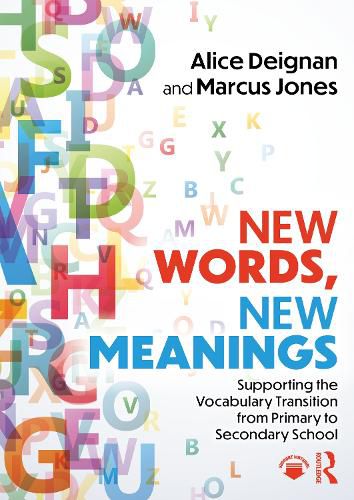Readings Newsletter
Become a Readings Member to make your shopping experience even easier.
Sign in or sign up for free!
You’re not far away from qualifying for FREE standard shipping within Australia
You’ve qualified for FREE standard shipping within Australia
The cart is loading…






When pupils move from primary to secondary school and start to study subjects in a more specialist way, they have to learn new and unfamiliar disciplinary languages, in each of the numerous subjects in their timetable. These new languages include new ways of presenting ideas, and hundreds, even thousands of new words as well as new meanings of words they think they already know.
Based on a major research project, this book explains the nature of the language challenge students face in early secondary school and shows teachers how they can make the language of their subject less daunting and more accessible for all students. Chapters explore the language of the classroom at Key Stage 2 and Key Stage 3 using written and spoken language data from everyday classrooms. Including subject specific word lists and contextual examples for English, maths, science, history and geography, chapters cover:
How language use is shaped by topic, context, relationships and purpose The language features of early secondary school Key principles for selecting vocabulary to teach Supporting pupils with disciplinary grammar and style Ensuring a whole-school approach to language issues
Full of practical tips to make the language of curriculums less daunting and more accessible for all students making the transition from primary to secondary school, this book will be valuable reading for teachers, educational support staff and school leaders working with children in late primary and early secondary school.
$9.00 standard shipping within Australia
FREE standard shipping within Australia for orders over $100.00
Express & International shipping calculated at checkout
When pupils move from primary to secondary school and start to study subjects in a more specialist way, they have to learn new and unfamiliar disciplinary languages, in each of the numerous subjects in their timetable. These new languages include new ways of presenting ideas, and hundreds, even thousands of new words as well as new meanings of words they think they already know.
Based on a major research project, this book explains the nature of the language challenge students face in early secondary school and shows teachers how they can make the language of their subject less daunting and more accessible for all students. Chapters explore the language of the classroom at Key Stage 2 and Key Stage 3 using written and spoken language data from everyday classrooms. Including subject specific word lists and contextual examples for English, maths, science, history and geography, chapters cover:
How language use is shaped by topic, context, relationships and purpose The language features of early secondary school Key principles for selecting vocabulary to teach Supporting pupils with disciplinary grammar and style Ensuring a whole-school approach to language issues
Full of practical tips to make the language of curriculums less daunting and more accessible for all students making the transition from primary to secondary school, this book will be valuable reading for teachers, educational support staff and school leaders working with children in late primary and early secondary school.